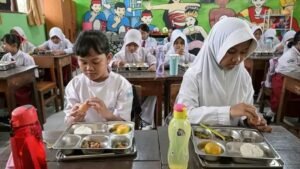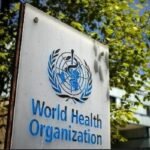HOW TECHNICAL ERROR CAUSED OVER 1,000 CHILDREN TO FALL ILL IN INDONESIA

More than 1,000 school children in Indonesia reportedly fell ill this week after consuming government-provided free school lunches, in what officials have described as the latest in a series of food poisoning outbreaks connected to a national nutrition programme.
Officials from the National Nutrition Agency (BGN) stated that the incident was caused by a technical error involving the Nutrition Fulfillment Service Unit (SPPG), which was responsible for preparing the school meals. The agency confirmed that operations by the SPPG in Cipongkor had since been suspended.
According to local health authorities, the outbreak occurred in Cipongkor, West Java, where 1,258 students experienced symptoms such as nausea, dizziness, stomach pain, and in some cases, shortness of breath, between Monday and Wednesday. The head of the West Java Cipongkor Community Health Center, Yuyun Sarihotima, reportedly confirmed the number of affected children during an interview with BBC Indonesia.
LONGSTANDING FOOD SAFETY CONCERNS
The meals served during the incident included soy sauce chicken, fried tofu, vegetables, and fruit, health workers said. In previous outbreaks, food poisoning cases were reportedly linked to expired sauces and poor food handling, including one instance involving fried shark.
Since January 2025, the BGN reported at least 4,711 cases of food poisoning tied to the free lunch programme. However, the Indonesian Education Monitoring Network (JPPI) claimed that as of 21 September, the number had reached 6,452 cases. JPPI’s national coordinator, Ubaid Matraji, was quoted as saying that the current situation was “abnormal” and called for the government to declare an official outbreak and temporarily suspend the programme for a full audit.
GOVERNMENT MAINTAINS PROGRAMME DESPITE OUTBREAKS
Despite growing public concern, Coordinating Minister for Community Empowerment Muhaimin Iskandar reportedly said on Wednesday that there were no plans to stop the programme. The government has consistently maintained that the initiative, part of President Prabowo Subianto’s flagship policy, remains crucial for tackling malnutrition and improving education outcomes among Indonesian children.
CALLS FOR POLICY CHANGES CONTINUE
Several non-governmental organisations and child welfare advocates have urged the government to review and restructure the programme. Some have proposed that funds be distributed directly to parents, allowing them to prepare meals at home. However, the BGN has reportedly rejected these suggestions, arguing that centralised distribution ensures greater reach and consistency.
The free school lunch programme is currently designed to serve 80 million school children across the country. Although praised for its ambition, the initiative has faced increasing scrutiny as food safety issues continue to emerge.









